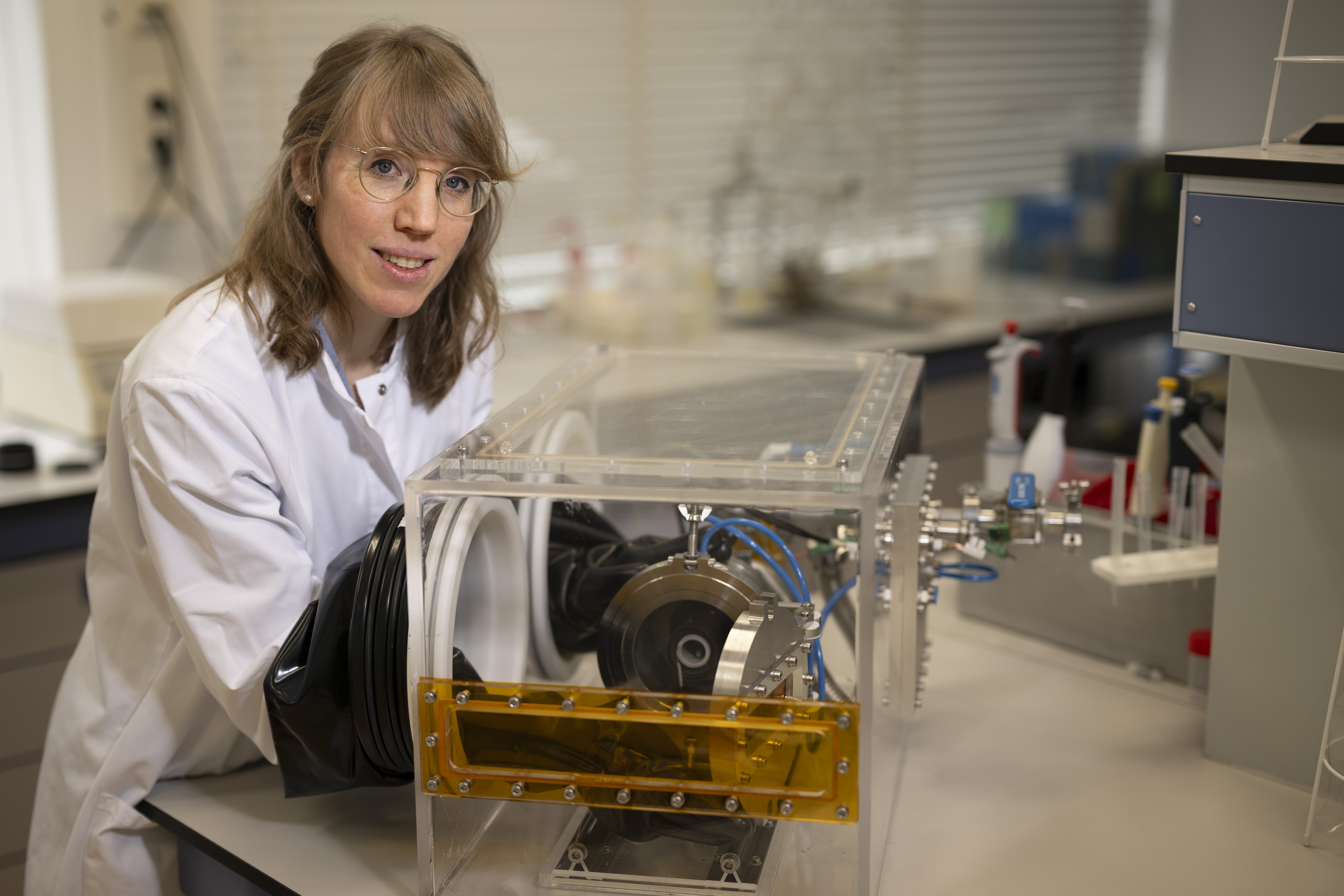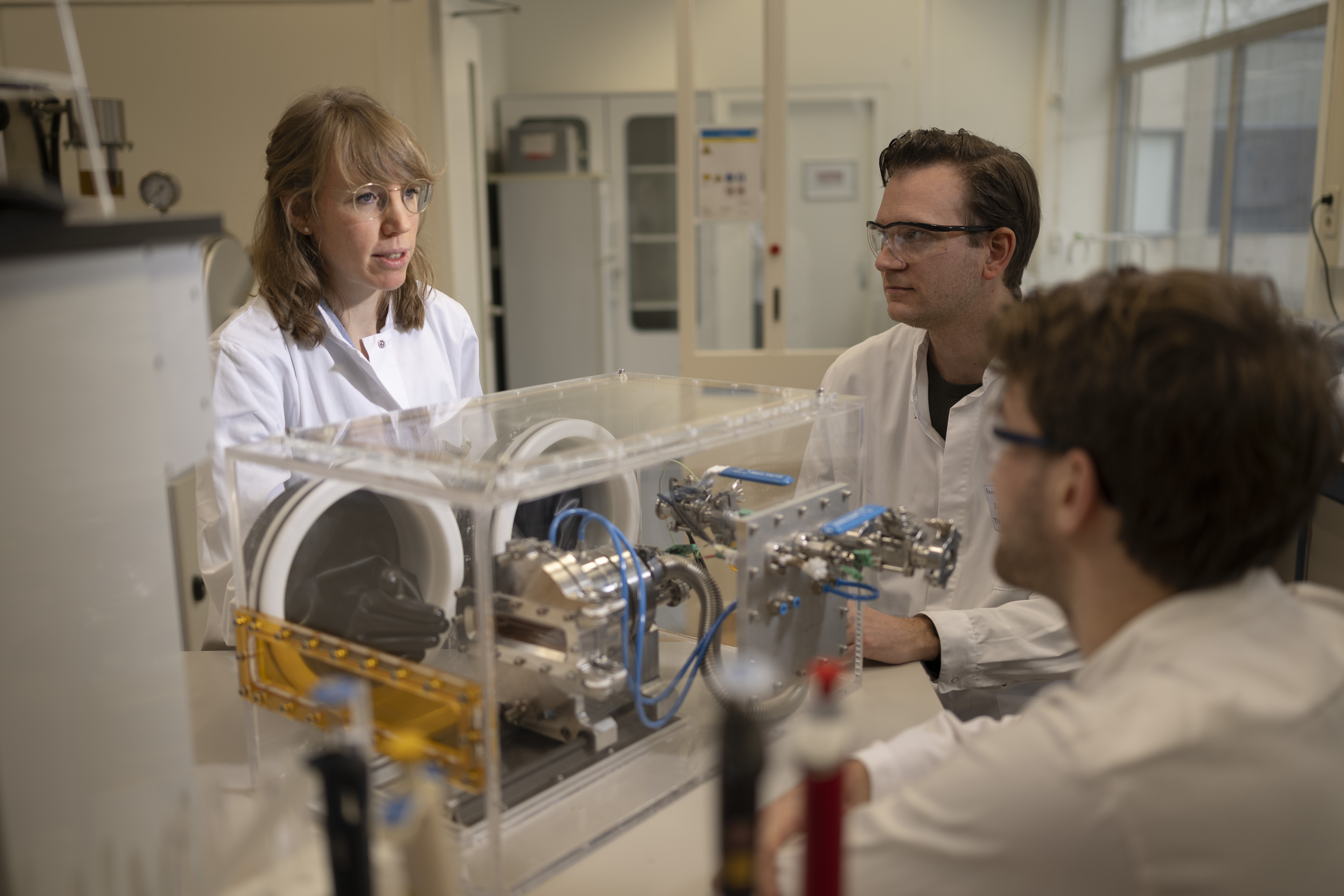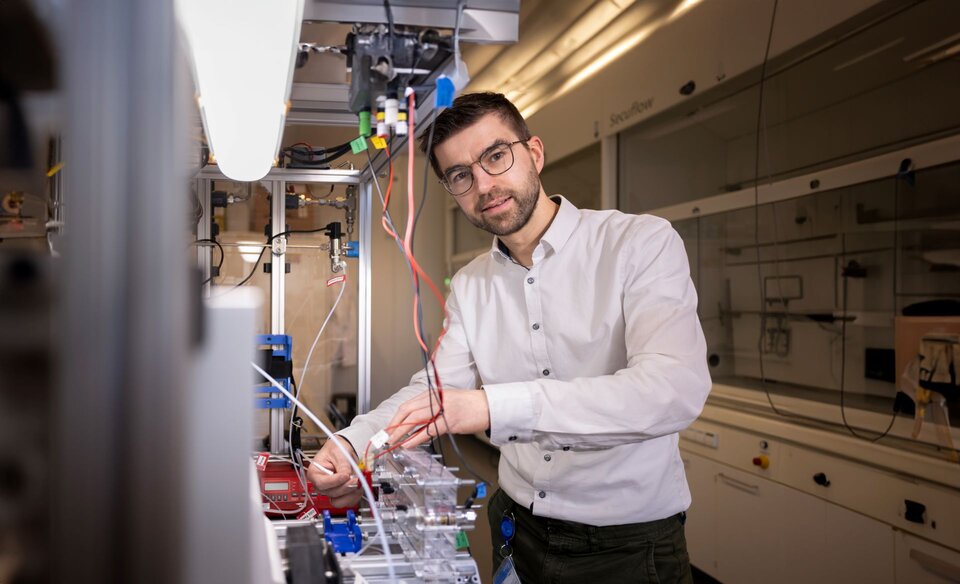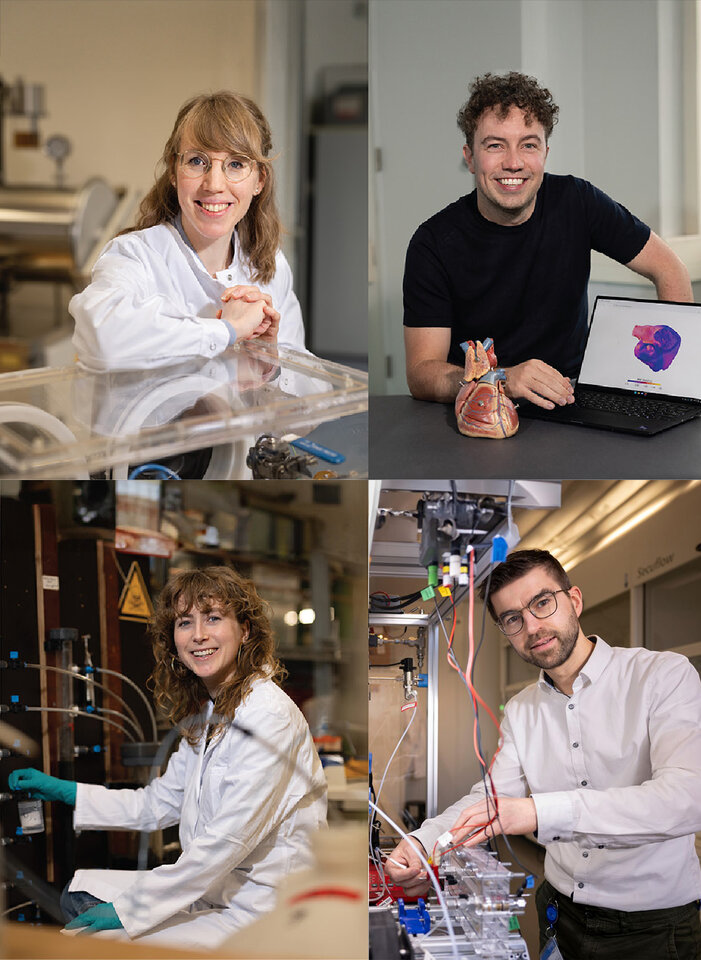The battle against climate change and the search for sustainable energy sources are reviving interest in nuclear energy. The new generation of nuclear reactors promises to be safe and clean. Anna Smith is researching new technologies at TU Delft. One of these is molten salt reactors. This is very different to the technology currently used, and has the potential to bring major advantages. But more knowledge about molten salts is urgently needed.
While current reactors use solid ceramic uranium dioxide pellets for fission, the fuel in molten salt reactors is liquid. There are several benefits related to the nature of the salt. The reactor works at atmospheric pressure and can produce heat at a higher temperature, making the reactor more efficient. Depending on its design, this type of reactor can also use for the fuel either thorium, which is available on earth in large quantities and produces less long-lived radioactive waste, or plutonium in waste materials coming from existing reactors.
“New types of nuclear reactors, like the molten salt reactor, are promising in terms of safety and sustainability,” says Anna Smith. “They could thus be significant in the energy transition. But to use this technology, we need to first understand how the chemistry and the properties of the molten salt fuel change during reactor operation. To do this, we are building computer models that can predict this.”
Experimenting
“This work is very challenging. The salts that we use contain uranium and thorium that are radioactive. They are also sensitive to air and corrosive at high temperatures. During reactor operation, the composition of the salt also changes due to fission. All this makes it challenging to predict the salt’s properties. On top of this, there is very limited data from other groups to build our models, which is why we need to do our own experiments. We do these experiments to learn about the properties of the salt at the atomic scale and we link these to important properties at the macroscopic scale, such as heat capacity, density, viscosity and thermal conductivity.”

"Donations from alumni would enable our team to build a new set-up that is suitable for experiments at the atomic scale."
Dr. Anna Smith, Associate Professor TU Delft
Design phase of reactors
The model that Smith’s group is developing can later be used by companies that want to build molten salt reactors. “They can use it in the design phase of reactors. The model will then predict whether a design with a particular composition of molten salt is safe and what may happen in different situations. Some start-ups hope to build an initial prototype reactor within 10 years. To achieve this, they urgently need our model.”
The importance of nuclear energy
Nuclear energy can play an important role in the energy transition. The more CO2-free sources we use, the better we can meet the increasing demand for electricity. “There is a huge need for green energy in view of climate change. I believe that we should work towards a smart network to which different sources of energy are connected. Nuclear energy could provide a base-load supply. This project is helping to make this happen.”
With contributions from alumni
Donations from alumni would enable Smith’s team to build a new set-up that is suitable for experiments at the atomic scale. “We do experiments once a year using a special high temperature set-up in a synchrotron facility in either Germany or France. These facilities have intense X-ray radiation and a high flux. These are very challenging experiments and we are one of the few research groups in the world that do them. A better research set-up would enable us to obtain much more data from this week of tests and speed up our research.”
-
Delft University Fund uses your data to process and record your donation and to inform you about the activities and work of the University Fund. Your personal details will be treated confidentially in accordance with the Dutch Personal Data Protection Act and will never be provided to third parties. Please read our privacy statement here.
Researcher profile
Name: Anna Smith (35)
Born in: Limoges, France
Expertise: physical chemistry and material science
Faculty: Applied Sciences
Working on: predictive model of the properties of molten salt as a nuclear fuel
Potential applications: new generation of nuclear reactors that excel in terms of safety and sustainability and help progress the energy transition
Donation spent on: new testing set-up for research at atomic scale
Why TU Delft
“TU Delft is a leader in Europe in the research on molten salt reactor technologies and it also coordinates some European projects. Our department has the facilities and the permits needed to work with radioactive uranium and thorium. It is the only university in the Netherlands where this is done. When I came here, there was already a lot of knowledge about reactor physics and I could bring my chemistry expertise to the table. Apart from that, I find TU Delft’s dynamics and the international environment very appealing.”






